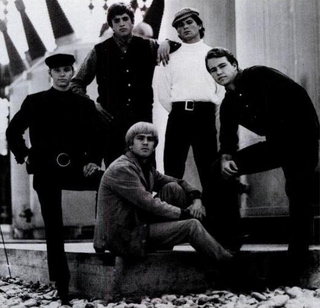
The Electric Prunes are an American psychedelic rock band, formed in Los Angeles, California, in 1965. Much of the band's music was, as music historian Richie Unterberger described it, possessed of "an eerie and sometimes anguished ambiance." Their most successful material was by songwriters Annette Tucker and Nancie Mantz, though the group also penned their own songs. Incorporating psychedelia and elements of embryonic electronic rock, the band's sound was marked by innovative recording techniques with fuzz-toned guitars and oscillating sound effects. In addition, guitarist Ken Williams' and singer James Lowe's concept of "free-form garage music" provided the band with a richer sonic palette and exploratory lyrical structure than many of their contemporaries.

The Shadows of Knight were an American rock band from Chicago, Illinois, that played a version of British blues influenced by their native city. When they began recording in 1965, the band's self-description was "the Stones, Animals and the Yardbirds took the Chicago blues and gave it an English interpretation. We've taken the English version of the Blues and re-added a Chicago touch," to which rock critic Richie Unterberger commented: "The Shadows of Knight's self-description was fairly accurate."

The Chocolate Watchband is an American garage rock band that formed in 1965 in Los Altos, California. The band went through several lineup changes during its existence. Combining psychedelic and garage rock components, their sound was marked by David Aguilar's lead vocals, songwriting, as well as proto-punk musical arrangements. The band's rebellious musical posture made them one of the harder-edged groups of the period with many critics labeling them as America's answer to the Rolling Stones.

The Outsiders were an American rock and roll band from Cleveland, Ohio, that was founded and led by guitarist Tom King. The band released the hit single "Time Won't Let Me" in early 1966, which peaked at No. 5 in the US in April. The band had three other Hot 100 top 40 hit singles in 1966, but none on the Hot 100 afterwards, and released a total of four albums in the mid-1960s.
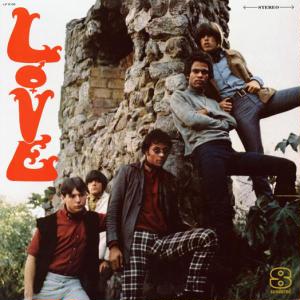
Love is the debut album by the Los Angeles-based rock band Love; released in March 1966 by Elektra Records.

The Leaves were an American garage rock band formed in the San Fernando Valley, California, in 1964. They are best known for their version of the song "Hey Joe", which was a hit in 1966. Theirs is the earliest release of this song, which became a rock standard.
The Litter was an American psychedelic and garage rock band, formed in 1966 in Minneapolis, Minnesota, United States. They are best remembered for their 1967 debut single, "Action Woman". The group recorded three albums in the late 1960s before disbanding, but they re-united in 1990, 1992, and again in 1998, when they recorded a new studio album consisting of both old and new material. All of their Minneapolis recorded material was produced by Warren Kendrick, who owned the Scotty and Warick and Hexagon labels.
The Choir was a garage rock band largely active in the greater Cleveland area from the mid-1960s into the early 1970s. Originally called The Mods, their largest commercial success came with the release of their first single "It's Cold Outside" in December 1966. The song, considered to be a classic of the garage rock era, was featured on Pebbles, Volume 2, one of the earlier garage rock compilation LPs. The flipside, "I'm Going Home" was included as a bonus track when the Pebbles album was reissued as a CD, and it can also be found on a garage rock compilation LP on Ohio bands, Highs in the Mid-Sixties, Volume 9. The Choir is well known for containing three of the four original members of Raspberries.
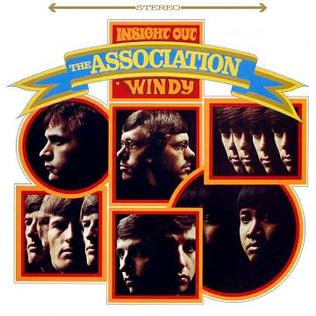
Insight Out is the third album by the American pop band the Association and was released on June 8, 1967 on Warner Bros. Records. It was the band's first album release for the Warner Brothers label and it became one of the top selling LPs of the year in America, peaking at number 8 on the Billboard Top LPs chart and being certified gold by the Recording Industry Association of America. Critic Richie Unterberger has attributed much of the album's success to the inclusion of the U.S. hits "Windy" and "Never My Love", which reached number 1 and number 2 on the Billboard Hot 100 chart respectively and were among the most-played records on AM radio during the late 1960s.
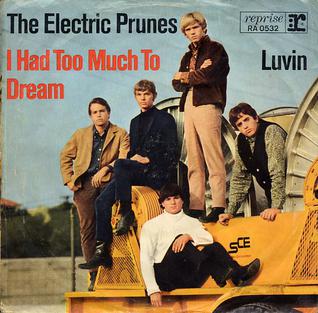
"I Had Too Much to Dream (Last Night)" is a song written with music by Annette Tucker and lyrics by Nancie Mantz, which was recorded in late 1966 by the garage rock band The Electric Prunes. Released as the band's second single, it reached number 49 in the UK and peaked at number 11 on the Billboard Hot 100 the week ending February 11, 1967.

The Free Spirits was an American band credited as the first jazz-rock group. The band also incorporated elements of pop and garage rock. Their first album Out of Sight and Sound was recorded in 1966 and released in 1967.
Kenny and the Kasuals were an American garage rock band formed in Dallas, Texas in 1964. The band played at various venues, including the Studio Club, with a repertoire that consisted of material taken from the British Invasion and R&B standards. Over time the band began experimenting with early elements of psychedelic music and are often cited as one of the first groups to play in such a style. Kenny and the Kasuals released several singles including their best-known song, "Journey to Tyme". A live album, Impact, was also recorded in 1966.

The Grodes, sometimes known as The Tongues of Truth, were an American garage rock band from Tucson, Arizona, that featured lead singer and songwriter Manny Freiser, and were active between 1965 and 1968. They are best remembered for two Manny Freiser written songs, the original version of “Let’s Talk about Girls" and Cry A Little Longer, recorded by The Grodes, the #46 single on the All-Time Garage Rock singles chart.

"Action Woman" is a song by the American garage rock band the Litter, written by their record producer Warren Kendrick, and first released as the group's debut single on Scotty Records in January 1967. The song also appeared on the band's first album Distortions. Although "Action Woman" never broke out on the national charts, it is now revered as a classic piece of the musical genre of garage rock. Accordingly, the composition has appeared on several compilation albums – most famously as the opening track on Pebbles, Volume 1, incorporating a skip in the recording – and has been the subject of cover versions.
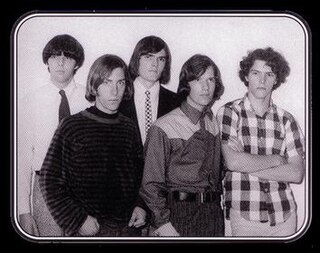
Harbinger Complex was an American garage rock/psychedelic rock band from Fremont, California, who were active in the mid-1960s. In the years since their breakup, their work has come to the attention of garage rock fans and collectors and has appeared on several retrospective compilations including the Nuggets 4-CD box set. They are best-remembered for their 1966 song, "I Think I'm Down."

The Enfields were an American garage rock and psychedelic band from Wilmington, Delaware who were active in the 1960s. They were led by guitarist and songwriter Ted Munda, and their style was highly influenced by the British Invasion and folk rock. They were considered the top group in Wilmington at the time and enjoyed several local hits, though they failed to reach a wider national audience due to poor management. The Enfields broke up in 1967, but Munda went on to form the group the Friends of the Family. Ted was also in the Blues Magoos, wrote for various Publishing companies in LA, was signed to Columbia Records in 1973 with group" Hotspur", and co-wrote "Blame It On Love" for Smokey Robinson in 1983–84 on Motown. He has several albums of unreleased produced material.

The David was an American garage rock/psychedelic rock band from Los Angeles, in southern California who were active in the 1960s and early 1970s. They are known for songs such as "40 Miles," which became a minor hit in Bakersfield. They began with a basic garage approach but later expanded their creative palette to incorporate esoteric and baroque elements on the 1967 album, Another Day, Another Lifetime. They continued for a few more years but disbanded in the early 1970s.

The Escapades were an American garage rock band from Memphis, Tennessee who were active in the 1960s. They became one of the most popular groups in the Memphis area during the mid-1960s and recorded two singles. "I Tell No Lies", the A-side of their debut single, became a big hit in Memphis and around the South. They were signed to Verve Records, who released their follow-up, "Mad, Mad, Mad", which featured a fuzz-toned guitar line. Their work is highly regarded by garage rock enthusiasts and collectors and has appeared on various compilations.

The Dagenites were an American garage rock a band from Oxon Hill, Maryland near Washington, DC, who were active in the 1960s. They shared management and frequent billing with noted guitarist and performer Link Wray. In recent years their work has become highly regarded amongst garage rock enthusiasts and collectors and has been included on several compilations. The Dagenites are especially known for their proto-punk anthems, "I Don't Want to Try it Again" and "I'm Gone Slide", both of which have been mentioned as garage rock classics.

Distortions is the debut studio album by American psychedelic and garage rock band the Litter. It was released on May 1, 1967, by Warick Records and includes the single "Action Woman".

















